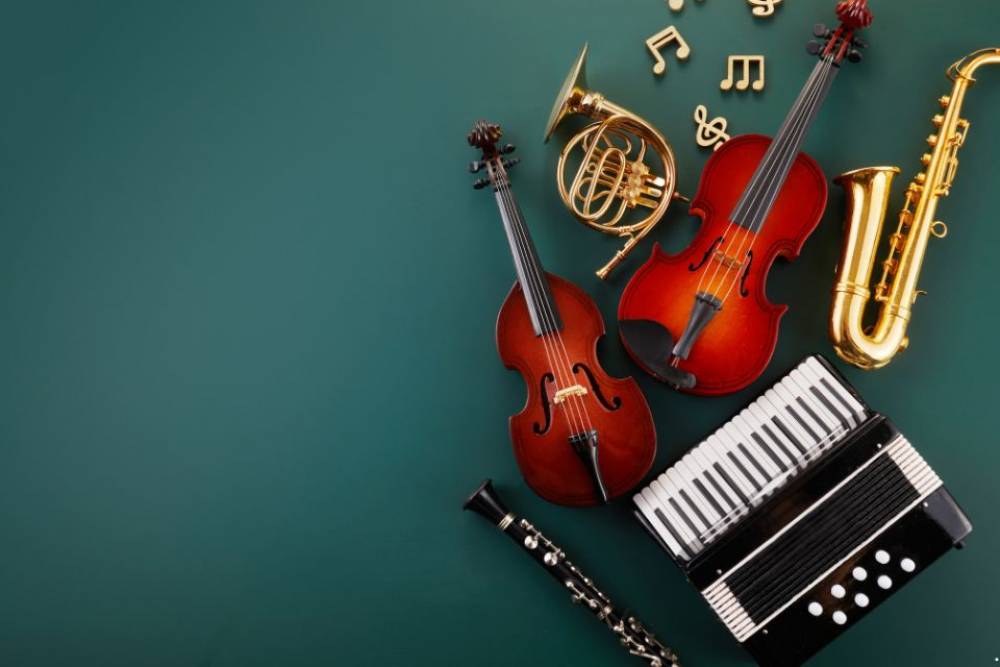
Why Music Schools Are Essential For Developing Musical Talent
Music schools play a crucial role in fostering musical talent and providing aspiring musicians the necessary tools to develop their skills. These institutions offer structured education, guidance, and access to invaluable resources in shaping a musician's career. While self-taught musicians can make significant strides, the benefits of formal training in a music school cannot be overstated. We will explore how Playtime Music Academy of Greater Baltimore contributes to the growth of musical talent through its curriculum, faculty, and opportunities for performance. We will also examine their broader impact on the music industry and individual growth.
Comprehensive Curriculum for Skill Development
A structured curriculum is one of the most important aspects of a music school. Different from informal methods of learning, which can often lack direction, a music school provides a well-rounded education that covers various aspects of music theory, technique, and performance. This comprehensive approach ensures that students are learning how to play an instrument and gaining a deeper understanding of music's underlying principles. They study composition, harmony, rhythm, and ear training, essential for musicians who want to excel in their craft. This well-organized framework enables students to progress steadily, building on their knowledge and skills. Music schools often introduce students to various genres, encouraging them to become versatile musicians capable of adapting to different styles and techniques.
The structured nature of music school education helps students build a solid foundation, making it easier to refine their talents and reach their full potential. Without this formal training, many musicians might lack the tools to tackle complex compositions or understand the musical theory needed to create original work. Music schools provide students with the structure and discipline they need to grow musically, which is critical for those aiming to have a lasting impact in the music world.
Access to Experienced Instructors and Mentorship
One key advantage of attending a music school is learning from experienced instructors who can offer guidance and mentorship. These instructors, who often have years of practical experience in the music industry, can provide students with personalized feedback and insights they might not receive elsewhere. The mentorship aspect of a music school goes beyond mere technical instruction. Instructors often serve as role models, providing inspiration and helping students navigate the challenges of a music career.
This relationship between instructor and student is vital for a musician's development. Music teachers help students hone their technical abilities and understand the nuances of musical expression, interpretation, and performance. Feedback received in a music school setting allows students to identify areas for improvement and take steps to address them. This kind of one-on-one mentorship can be life-changing for a student, providing the guidance necessary to develop their unique musical voice.
Opportunities for Performance and Collaboration
Music schools also offer numerous opportunities for students to perform and collaborate with their peers. Regular performance opportunities, such as recitals, concerts, and ensemble work, are essential for any musician's growth. Performing in front of an audience helps build confidence, refine stage presence, and provide valuable experience that can’t be replicated through practice alone. Music schools offer a safe environment where students can experiment with different performance styles, learn how to handle performance anxiety and receive constructive feedback from instructors and fellow students.
In addition to solo performances, music schools foster collaboration through group lessons, ensembles, and other collective musical activities. This teamwork is crucial for developing listening, communication, and adaptability skills. Being part of a musical group allows students to understand the dynamics of working with other musicians, whether in a small chamber group or a large orchestra. These experiences are often formative and provide students with the practical knowledge they need to succeed in professional musical settings, where collaboration is often an essential part of the job.
Exposure to a Diverse Music Community
Music schools often serve as a hub for diverse musical communities, bringing together students from various backgrounds, cultures, and genres. This diversity is valuable for aspiring musicians, exposing them to various musical styles and traditions. By interacting with peers from different cultural and musical backgrounds, students can broaden their musical horizons and become more open-minded in their approach to music. This exposure to other genres and perspectives fosters creativity and encourages students to experiment with new ideas, ultimately enhancing their ability to compose, perform, and collaborate.
The diversity within music schools also creates a network of connections that can be invaluable as students advance in their careers. Many music schools have alumni who have succeeded in various areas of the music industry, and being part of this network can open doors to future opportunities. Students who can form relationships with their peers and faculty members often find that these connections last long after they leave school, providing a strong foundation for their future careers.
Music schools are essential for developing musical talent as they provide a comprehensive education, personalized mentorship, performance opportunities, and access to a diverse community of musicians. These institutions offer structured curricula that guide students through the complexities of music theory and performance, ensuring that they develop a well-rounded skill set. In addition to technical training, music schools provide valuable experiences that help students build confidence, collaborate with others, and prepare for professional opportunities. The connections and resources offered by music schools play a crucial role in shaping the next generation of musicians, making them indispensable for anyone serious about pursuing a music career.

